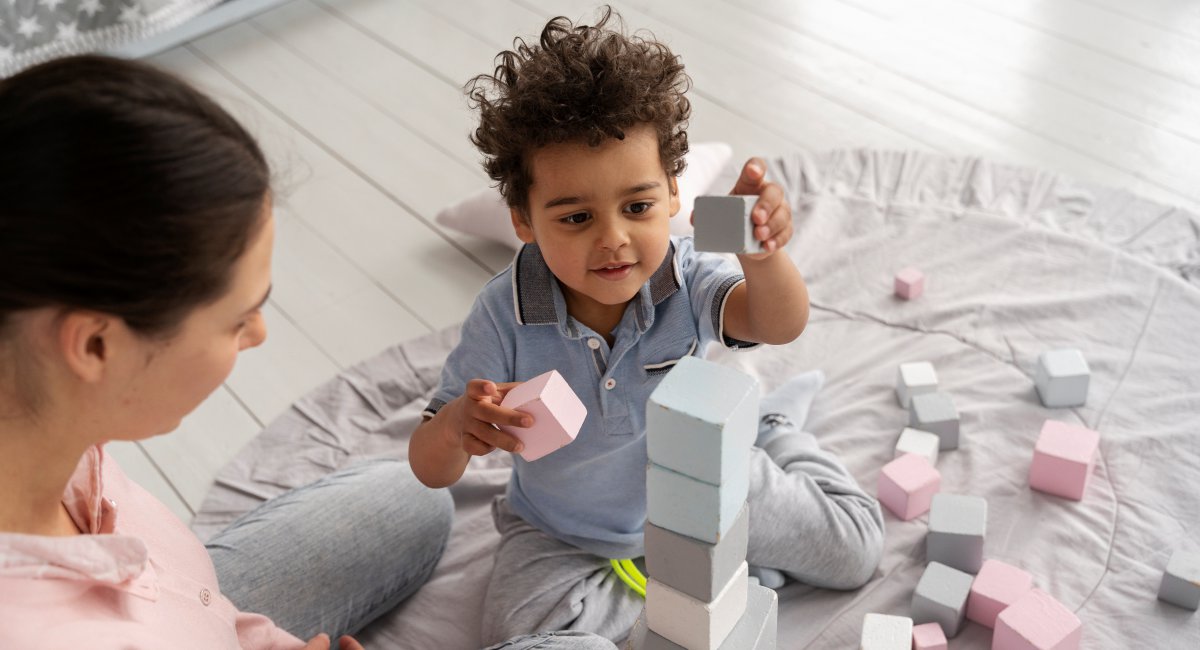While making plans with other parents, you might have often noticed them saying “Oh, that’s too late for my child to be out” or “Sorry, we can’t make it because that is right in the middle of his/her nap time”. This is because they don’t want to go through the trouble of dealing with a cranky child who is thrown off of their sleep schedule. Almost every parent who has a toddler at home would agree that the lack of a regular schedule can be stressful as they would have already experienced the chaos that ensued without them. This article will discuss how to prepare an effective daily schedule and get your child used to it.
Designing an Effective Daily Routine
While creating a daily schedule, you need to be able to allow enough time for various activities in the day while focusing on the child’s holistic development.
Your child’s morning routine should include waking up at a consistent time followed by personal hygiene tasks and a healthy breakfast. You can also add some time for reflection or positive affirmations with the kids to kickstart the day on a positive note. The schedule should incorporate enough time for completing academic tasks. Additionally, based on their interests, they should also engage in extra-curricular activities such as arts, sports, music or dance. Encourage them to engage in activities they genuinely enjoy and limit the number of extra-curricular activities to avoid overscheduling.
Children have lots of energy and can switch from one activity to another quickly. Their attention span is also shorter than that of adults. Hence, adequate breaks should be incorporated into their schedule in order to avoid burnout. Short breaks between learning sessions can help them focus better.
After all the learning and playing throughout the day, they need to have an early and consistent bedtime to ensure both physical and mental well-being. Getting sufficient sleep is crucial in making sure that they are well-rested and recharged to take on the next day with the same enthusiasm.
Getting Children to Adapt to the Schedule
One of the best ways to get your kids to follow a routine is to let them be involved in the planning process. Make them an active participant while creating a schedule by asking for their interests and preferences. Both parents and children play a significant role in supporting the daily routine of students. They should provide the required guidance and motivation to children, especially when they face challenges in sticking to their schedules. There can be days when a few activities may not go as planned due to sudden disruptions. As parents, you need to address those challenges with patience and make necessary adjustments to ensure that such small inconveniences do not compromise the entire routine. Monitor your child’s progress in adhering to the routine daily. Assess the effectiveness of the routine and be flexible to make necessary changes based on the feedback.
How Can Parents Encourage Children to Follow a Routine?
Once you have created the daily schedule, you need to adopt the right approach to encourage your child to follow, making it a rewarding experience. Include fun elements into your routine to make an otherwise boring schedule more appealing to the kids. For example, you can turn the learning session into a game where the child will be rewarded with a treat upon completion of each task. As adults, you need to lead by example by adhering to your daily routine. It will help them understand the benefits of having a structured routine. To make it fun, create a colourful visual representation of the daily schedule. Add creative pictures and stickers to attract the children and make it an engaging experience for them.
You need to know that young children will take time to adapt to a new routine. As they transition to the primary school setup, know that they need time to get used to the adjustments. Have patience while dealing with the challenges and offer complete support during this transition period. When they learn to adhere to their routine consistently, celebrate their accomplishments. Celebrating and rewarding a successful milestone will motivate them to continue sticking to the routine.
Keep in mind that the schedule should incorporate small, achievable tasks. You should not overwhelm the child with too many tasks. Communicate and collaborate with your kid’s instructors to ensure that their daily routine aligns with the school’s needs and activities.
Having a daily routine from a young age will instil the values of discipline and responsibility in children. With a daily schedule, they will feel more secure and be able to manage their time effectively, thus, enabling them to progress in their personal and academic lives.



